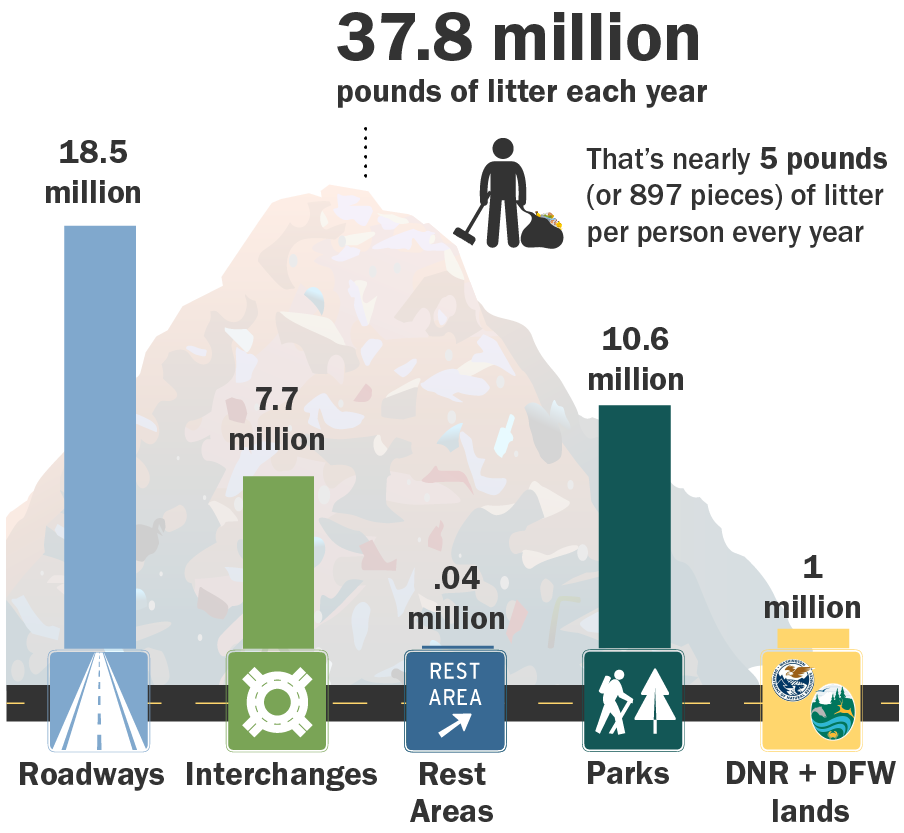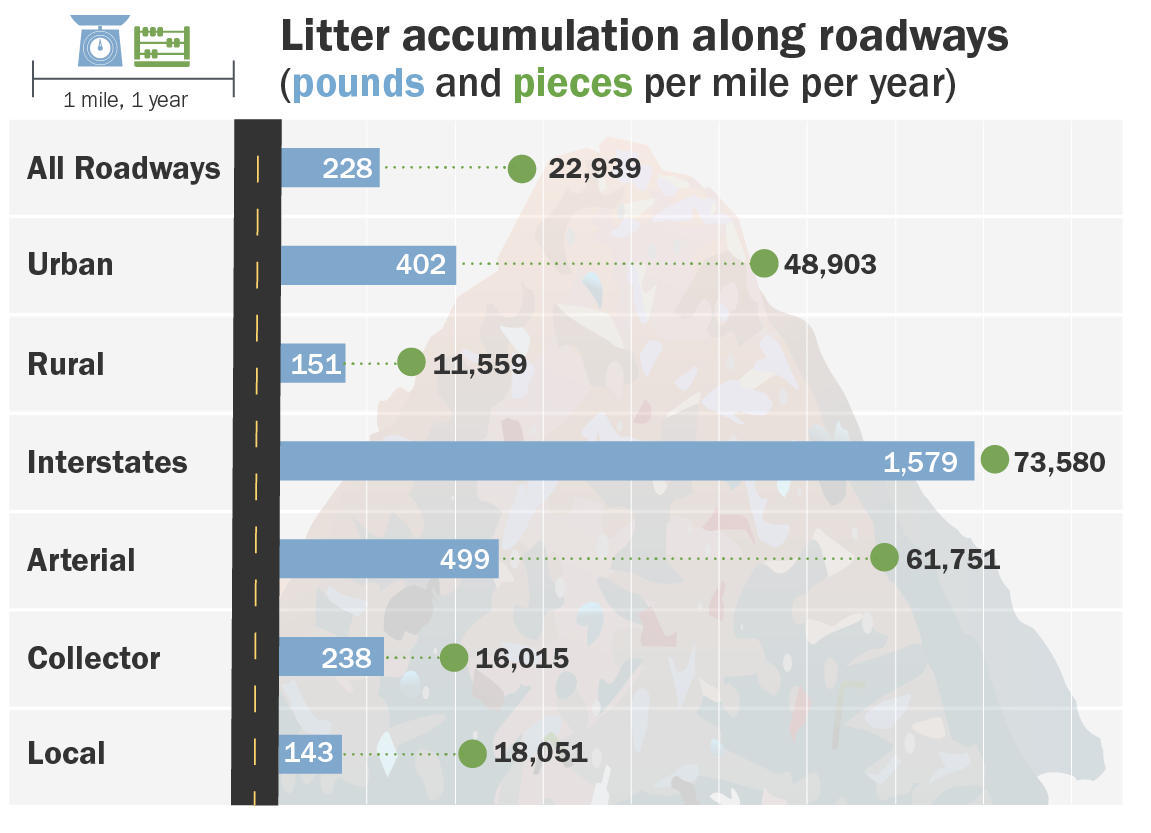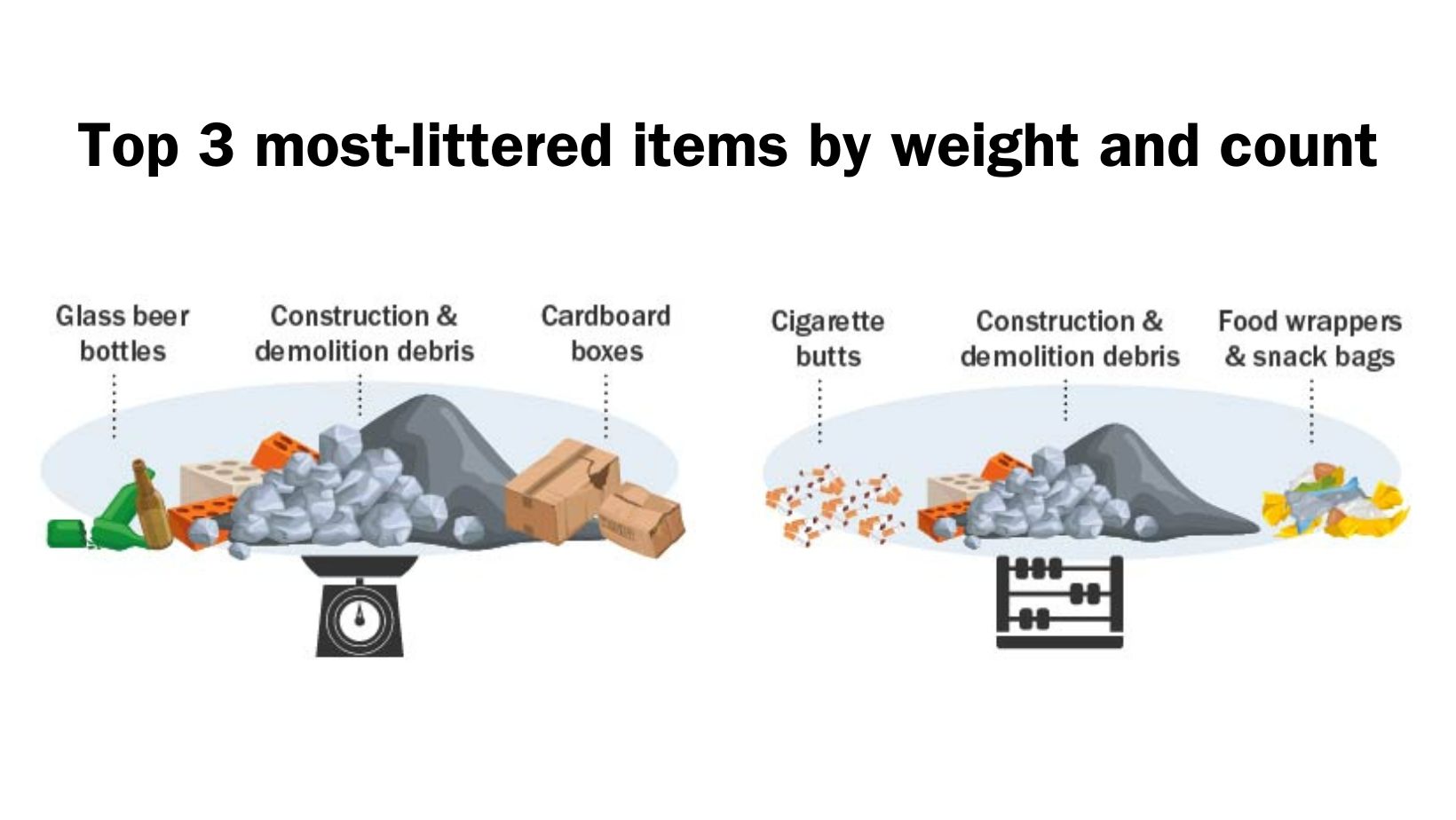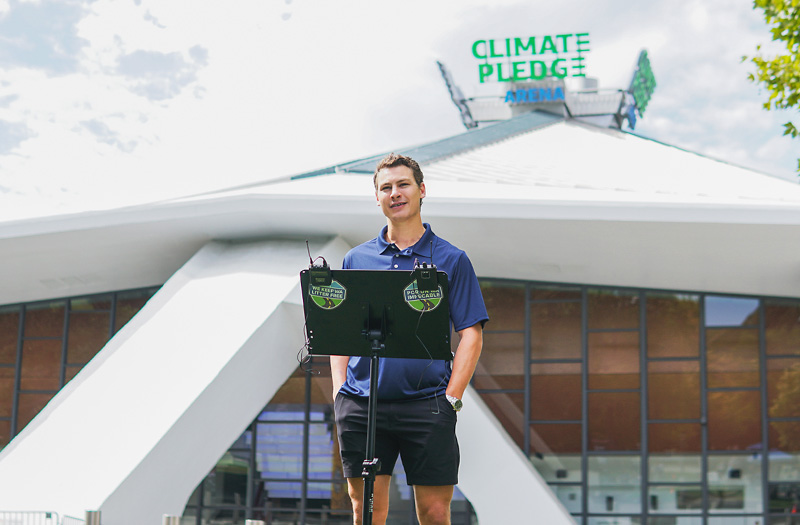For the first time in nearly 20 years, a comprehensive statewide litter study catalogued and analyzed the assorted debris that ends up on Washington’s roads and public areas. What did the study find? So. Much. Trash.

The statewide litter study, commissioned by the Washington Department of Ecology, found an average of 8,112 pieces of litter per mile on roadways last spring – well above the national average.
That fast food wrapper that blew out the window of your car last week? It’s now part of the nearly 38 million pounds of litter estimated to accumulate on our state’s roads and public areas each year. Tally it up and that’s almost 5 pounds of litter for every single resident of our state.
Some of the most common items include cigarette butts, food wrappers and snack bags, glass bottles and construction and demolition debris. All of this litter is completely preventable through simple daily actions.
“It’s heartbreaking to see the most beautiful state in the country marred by litter,” said Washington Gov. Jay Inslee. “Too often, we see people point the finger at others when it comes to litter. The truth is, we all need to do our part to prevent litter – whether that’s keeping a trash bag in our car or strapping down cargo to prevent accidents. A few simple steps can make a big difference for everyone in Washington.”
Who’s responsible for all this litter?
Where’s the litter? Interstates are far and away the number one category, attracting almost as much litter per mile annually as all other roadways combined. (Note: this shows annual accumulation, which is different than the point in time/snapshot statistic for the national average.) 
We all are – although some of us more than others. Research shows that 75% of Washingtonians choose to do the right thing and not litter – but the biggest offenders amongst the other 25% are men 18-44 years old. Why do they do it? The most common excuse is simply not having a litter bag in their vehicle or the equipment needed to properly cover and secure their load.
According to the Keep America Beautiful National Litter Study, the national average is 5,714 pieces per mile. It's not clear why Washington appears to have significantly more litter on its roads – this is the state’s first study of its kind since 2004. There is no single category of litter or location that stands out as a driver of the disparity.
"It's no surprise to us that litter is a serious challenge for our state. Ecology and our partners have already picked up over 6 million pounds of litter in the first half of this year – nearly an all-time high," said Laura Watson, Ecology’s director, "But we can’t clean our way out of this. This new data really underscores the work we still have ahead of us and the importance of preventing litter at the source."
Fortunately, things are looking up: new funding from the Legislature increased the resources Washington puts toward litter pickup and prevention. Ecology is working with the Washington State Department of Transportation (WSDOT), the Washington State Patrol and a number of other state agencies and local governments to increase the amount of litter cleaned up each year – and decrease the amount of litter that gets dropped in the first place.

The new study focused solely on litter from travelers. It did not investigate trash associated with homeless encampments, which is separate from the state’s litter prevention campaign. The more than 26 million pounds of litter accumulating on the thousands of miles of Washington roadways and on-off ramps every year comes from travelers who either toss it out, fail to clean out their truck bed or do not properly secure their cargo.
Unsecured loads are unsafe!
Litter is all-hands-on-deck for the state because it’s not just an eyesore – it can be a distraction and hazard. Data shows that every year in Washington, debris from unsecured loads causes more than 300 traffic crashes and 30 injuries. In 2022, that toll included five deaths attributed to large debris falling from unsecured loads.
“We acknowledge that roadside litter is not just unsightly but also poses serious safety concerns to travelers – including roadside workers and people who walk, bike and roll,” said Washington State Department of Transportation Secretary Roger Millar. “That is why we stand arm-in-arm with our partners at Ecology and the Washington State Patrol in litter prevention and ongoing cleanup efforts, but the simple truth is there is more litter than we can collect. We ask everyone to help keep litter off our roadways and rights of way and secure their loads on every trip – even just across town.”
Next steps on litter

This month, Ecology, WSDOT, the State Patrol and the Washington Traffic Safety Commission plan to expand the state’s We Keep WA Litter Free prevention campaign. To kick off the campaign, Ecology hosted a media event on Sept. 7, partnering with Seattle professional hockey player Yanni Gourde. Gourde is also using his social media presence to show how everyone can be a part of the solution to littering and raise awareness with fans, including through a social media contest in late August where five fans won a signed hockey puck and a chance to meet him at the media event. Additionally, Ecology is running statewide advertising in English and Spanish and distributing a Litter Prevention Toolkit to allied government agencies, jurisdictions and nonprofit organizations to help support the campaign.
Preventing litter, one litter bag at a time
Ecology’s research identified “not having a trash bag in the car” as one of the top reasons people litter. To address that need, the We Keep WA Litter Free campaign is giving away free, reusable car litter bags at grocery stores throughout the state as part of a partnership with Washington Food Industry Association and food distributor URM. See participating stores on a map or in a list sorted by city.
More information
- To learn more about this campaign, please visit LitterFreeWA.org or PorUnWAImpecable.org.
- Learn more about Ecology’s litter pick up and prevention programs.
- Consider volunteering to pick up litter as part of WSDOT’s Adopt-a-Highway volunteer program.

